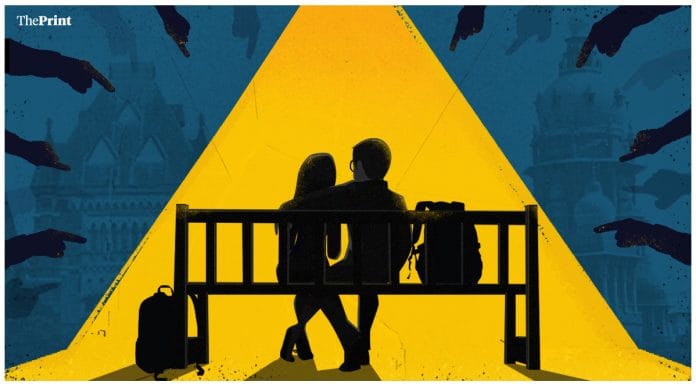The Supreme Court of India’s May judgment in a rape and kidnapping case under the POCSO Act—where it decided not to send the convicted West Bengal man back to jail—addressed key issues of adolescent privacy, autonomy, and consensual relationships. The judgment talked about the need for a reassessment of laws on adolescent sexuality, balancing protection with individual dignity and evolving capacities, and warned against the criminalisation of consensual adolescent relationships.
The apex court reiterated that constitutional guarantees under Article 21 — particularly the rights to dignity, autonomy, privacy, and liberty — must guide judicial responses to cases involving adolescent conduct. It observed that rigid legal structures, when combined with deep-seated social stigma, often exacerbate the trauma of adolescent survivors, and called for justice mechanisms centred on rehabilitation, support, and proportional outcomes, including non-custodial sentencing in appropriate circumstances.
The court also evoked the West Bengal government’s obligation to act as the true guardian of the victim and her child. It underscored that while the incident itself brings foundational derision into the lives of such victims, the trauma suffered by adolescent survivors is often amplified by rigid legal mechanisms, social dogmas, and the systemic failure of providing appropriate respite.
The judgment acknowledges the cognitive and emotional maturity increasingly evident among adolescents aged 16 and above — fostered by greater access to education, technology, and evolving social norms. The Supreme Court’s ruling sparing the POCSO-convicted man of 20-year jail time aligns with international standards that discourage blanket criminalisation of adolescent sexual activity. Many jurisdictions globally adopt “close-in-age” exemption to protect consensual peer relationships from being mischaracterised as statutory offences.
In contrast, India’s Protection of Children from Sexual Offences (POCSO) Act, while enacted to shield children from sexual exploitation, has often been misapplied to prosecute consensual romantic relationships, especially where families disapprove of the association. The criminal justice system’s support for parental control over adolescent autonomy not only promotes regressive ideologies but also lethal methods such as so-called “honour killing.” Therefore, rather than safeguarding children, rigid laws are weaponised toward indirect enablement of violence and further victimisation.
Need for legal reform
The Supreme Court judgment draws attention to the growing misuse of the POCSO Act by parents and guardians as a tool to reinforce caste, community, and gender norms, weaponising legal provisions to invalidate adolescent agency. It notes that in rarer instances, sexual offence laws are misused through false or malicious complaints filed for retributive or coercive motives.
The strict statutory structure enables parents opposed to their children’s relationships to invoke POCSO charges against adolescent males, often weaponising the law to enforce social or caste boundaries. There have also been cases where families refusing to accept a daughter’s relationship have filed criminal complaints for rape, regardless of the girl’s wishes.
The court advocated for safeguards, including preliminary fact-finding inquiries, proportionate sanctions against those filing demonstrably false claims, and accountability for legal actors complicit in such misuse. It also critiqued the inadequacy of current victim compensation regimes, which are marred by bureaucratic delays, lack of uniformity, and minimal focus on psychosocial or educational rehabilitation.
The case also brings into focus the inadequacy of India’s victim compensation regime for adolescent survivors as state support often stops at financial compensation, notwithstanding their psychological, vocational or educational rehabilitation. The court called for minimum compensation thresholds (Rs 25 lakh), alongside long-term, survivor-centric support mechanisms, particularly in cases involving adolescent mothers.
These measures aim to ensure that India’s legal framework moves toward a more nuanced, rights-based model — one that respects adolescent autonomy, mitigates unnecessary criminalisation, deters misuse of protective laws, and ultimately upholds the constitutional values of dignity, privacy, and justice for young victims.
Also read: Sexualise, dehumanise Northeast people—Indian YouTubers have a new formula for more views
Necessary deterrents
Another troubling trend is the deliberate misuse of sexual offence laws not just by families but by complainants who file false allegations for personal, financial, or retaliatory motives. While such cases are rare, the justice system nevertheless must put safeguards in place to deter and penalise such misuse, regardless of the complainant’s gender. This includes mandating careful, evidence-based preliminary inquiries before registering cases involving adolescent relationships.
Proportionate penalties can also be imposed such as monetary fines or criminal liability, and instituting accountability for legal counsels, police, and other intermediaries who abet such misuse.
These deterrents are essential to uphold the integrity of sexual offence laws, protect the wrongfully accused from irreversible social harm, and prevent erosion of trust in systems meant to protect genuine victims.
Also read: Radhika Yadav murder isn’t about one rogue father. Women earning for family is still taboo
Revise the legal age for consent
Given the changing realities facing adolescents, reforms merit revisiting the legal age for consensual relationships, aligning the adolescent capability to international best practice and the “close-in-age” defences to be built into POCSO to distinguish consensual adolescent exploration from exploitative abuse by adults. These must be accompanied by victim compensation frameworks to move beyond transactional payments and toward holistic, survivor-centered long-term support models, ensuring dignity and reintegration.
The law enforcement agencies too must be sensitised on adolescent agency and privacy rights, and should take measures to prevent “victimisation of the victim” through the process itself.
Such transformative reforms will not only uphold constitutional values of dignity, autonomy, and privacy, but also ensure that the law protects rather than punishes young people for consensual choices.
Mahalakshmi Pavani is a Senior Advocate practicing before the Supreme Court of India. Views are personal.
(Edited by Aamaan Alam Khan)






